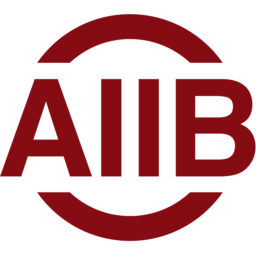34 Civil Society Organizations submit joint recommendations on how to strengthen AIIB’s Project-Affected People’s Mechanism

A version of this blog was also published in the AIIB Observer Vol. 2
As the Board of Governors of the Asian Infrastructure Investment Bank gather for their annual meeting in Samarkand, Uzbekistan, we call on the Bank to strengthen its Project-Affected People’s Mechanism (PPM) and reaffirm the importance of accountability for its operations and remedy for communities negatively affected by its financing.
Five years ago, AIIB created the PPM to provide quasi-independent oversight for its projects; since then not a single case has been accepted by the mechanism. While the bank is still relatively young, its financing is already causing harm as evidenced by the 5 complaints the PPM has received and the 34 complaints instituted at other MDBs arising out of AIIB’s co-financed investments. In the absence of a viable accountability channel, AIIB is not hearing about environmental and social issues associated with its financing, not only risking the ability of its investments to hit their mark but also continuing to harm the bank’s intended beneficiaries.
For years, CSOs and affected communities have been raising concerns about accessibility challenges with the PPM Policy. Prohibitive entry barriers, exclusion of large parts of the AIIB’s portfolio, and the lack of a community-oriented approach have led to an erosion of community trust in the PPM, and groups have raised concerns about whether AIIB can still be considered to have a good faith commitment to accountability. These challenges have already had impacts on communities negatively impacted by AIIB financing in India, Bangladesh, and elsewhere.
Early this year, the Managing Director-Complaints-resolution, Evaluation, and Integrity Unit (MD-CEIU) acknowledged many of these concerns as it instituted a review of the PPM Policy and invited written comments to improve the visibility, accessibility, and effectiveness of the PPM. In July 2024, 34 CSOs submitted joint submissions providing detailed recommendations on how the PPM can become fit for purpose. Many of these recommendations have already been endorsed by the independent expert hired by the MD-CEIU to review the PPM.
The PPM must be empowered to self-initiate and accept cases associated with its financing:
- The PPM should be able to hear cases from all co-financed projects as project staff at AIIB need to understand how and why co-financed projects caused harm and prevent such harm in the future. Moreover, AIIB should use its leverage to provide remedy to affected communities.
- Parallel judicial or arbitral proceedings should not bar complaints to the PPM as those do not look at AIIB’s own non-compliance in a project.
- The PPM should be able to self-initiate a complaint when it receives credible information about systematic and substantial harm but factors including risk of reprisals impact the ability of communities to file complaints.
- AIIB should also accept complaints about harms around biodiversity, critical habitats, cultural heritage sites, and other global public goods by any natural or legal person.
The accountability process must be responsive to the needs of affected communities:
- In the restrictive civic space AIIB operates and in the absence of well-functioning client-led GRMs/management processes for redress, the PPM should not require communities to engage with these channels before coming to the PPM.
- Complainants should have the ability to authorize their chosen representatives whether local, national, or international to support them through the accountability process.
- The PPM should continually assess, prevent, and mitigate any retaliation risks faced by complainants and have and implement a zero tolerance policy towards retaliation.
- The PPM should ensure that it assesses and mitigates any power asymmetries between complainants and clients during its dispute resolution process.
- Complainants should have the opportunity to provide their inputs on the PPMs draft findings and recommendations before they are finalized, and be consulted on management action plans.
The accountability process should facilitate institutional learnings and remedy:
- The PPM should be able to recommend remedial actions in the compliance review report and based on them, and the management should commit to clear time-bound actions for returning AIIB to compliance and achieving remedy for affected communities.
- The PPM should have the ability to independently monitor the implementation of the Management Action Plan including by conducting site visits and hearing from complainants.
- The PPM should be able to recommend suspension of projects to the Board due to concerns of imminent harm.
- The PPM should have an institutional learning and advisory function informed by its case work, so that institutional policies and operational practices could improve and adapt in real time to benefit future projects. The effectiveness of the accountability system at AIIB should be measured by the extent to which institutional policies and practices have improved in response to complaints.
In addition to providing recommendations, the joint submissions also share examples of good policy from other independent accountability mechanisms and further propose policy language to amend the PPM Policy.
The ball is now in AIIB’s court and we will be closely awaiting the draft of the amended policy later this year.
Related Posts
- 24 June 2024 External Review Report Recommends Sweeping Changes to the AIIB’s Independent Accountability Mechanism
- 17 February 2024 AIIB must give local communities a voice in development projects
- 27 September 2023 Solomon Islands joins China-backed AIIB days after PM snubs Biden invite for Pacific summit at White House

